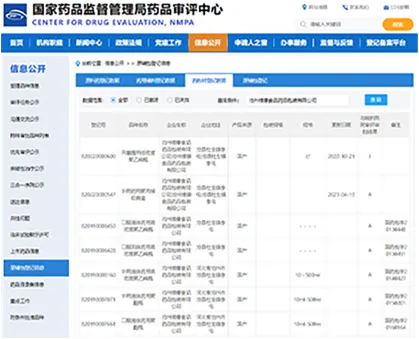Recycling Guidelines for Empty Prescription Bottles and Their Environmental Benefits
The Importance of Recycling Empty Prescription Bottles
In today's environmentally conscious society, recycling has become a significant aspect of waste management. Among various recyclable items, empty prescription bottles often go unnoticed. However, with a little awareness and effort, we can transform these seemingly mundane items into valuable resources while promoting environmental sustainability. This article explores the importance of recycling empty prescription bottles, the potential hazards of improper disposal, and practical ways to recycle them effectively.
Understanding the Importance of Recycling Prescription Bottles
Prescription bottles, often made of plastic, are used to store medications safely. The sheer volume of prescriptions dispensed each year leads to millions of empty bottles, which contribute to landfill waste if not managed properly. Recycling these bottles is crucial for several reasons
1. Environmental Impact Plastic pollution poses severe threats to wildlife and natural ecosystems. By recycling prescription bottles, we can reduce the amount of plastic refuse that ends up in landfills and oceans. Every bottle recycled contributes to lowering our carbon footprint and conserving resources, as it takes less energy and water to produce new products from recycled materials.
2. Resource Conservation Recycling helps conserve valuable raw materials. Plastic can be repurposed into various products, such as park benches, containers, and even new bottles. Utilizing recycled materials reduces the need for new plastic production, which often involves harmful extraction practices.
3. Community Health Improper disposal of prescription bottles can lead to potential health hazards. When disposed of in regular trash, these bottles can break open, resulting in the spillage of medications that can pose a risk to children and pets. Additionally, there is a risk of drug abuse and environmental contamination if bottles containing identifying information reach the wrong hands.
4. Creating Awareness Recycling prescription bottles can also foster community involvement and awareness regarding broader recycling initiatives. By participating in programs that encourage proper disposal and recycling of these bottles, individuals can become more conscious of their overall waste management habits.
Hazards of Improper Disposal
Improper disposal of empty prescription bottles can lead to numerous issues, including environmental contamination and personal safety risks. Littering or discarding prescription bottles in household trash can result in
- Pollution The improper disposal of pharmaceutical products can lead to groundwater contamination. Trace amounts of medications can leach into waterways, affecting aquatic life and, eventually, human health.
empty prescription bottle recycling

- Identity Theft Prescription bottles often contain personal information, including patient names, dosages, and medical details. Disposing of these bottles without proper precautions can expose individuals to identity theft and privacy breaches.
- Accidental Ingestion If prescription bottles are not recycled properly, discarded bottles may be ingested by curious children or pets, leading to dangerous situations.
How to Recycle Prescription Bottles Effectively
To maximize the benefits of recycling, it's essential to know how to dispose of prescription bottles properly. Here are some steps individuals can follow
1. Clean the Bottles Before recycling, ensure that the bottles are emptied and cleaned. Rinse them with warm water to remove any residue. Remove any labels containing personal information or sensitive data.
2. Check Local Guidelines Recycling rules can vary by location. Check with your community or local recycling center for specific instructions regarding plastic recycling, including whether they accept prescription bottles.
3. Participate in Take-Back Programs Many pharmacies and local organizations have medication take-back programs, allowing safe disposal of both medications and their containers. This is an effective way to eliminate unused medications while ensuring bottles are recycled correctly.
4. Repurpose If recycling is not an option, consider repurposing the bottles. They can be used for storage, as mini garbage bins for craft supplies, or even as watering cans for small plants.
Conclusion
Recycling empty prescription bottles holds far-reaching benefits for the environment and public health. By understanding the importance of responsible disposal, we can contribute to a greener planet while ensuring our communities remain safe and healthy. Embracing recycling initiatives not only reflects our commitment to sustainability but also inspires others to join the movement toward a more eco-friendly future. Let’s take a step towards responsible waste management by making sure those empty prescription bottles do not end up in the landfill. Together, we can make a difference.
-
Aesthetic Makeup Spray Bottles | Fine Mist Empty RefillableNewsAug.19,2025
-
White Plastic Veterinary Vaccine Vials | Lab Liquid BottlesNewsAug.18,2025
-
Plastic Medicine Liquid Bottle: Secure Flip Top Drug VialsNewsAug.17,2025
-
Durable 250ml Blue Plastic Vaccine Vial for Lab & Vet UseNewsAug.16,2025
-
Sterile Virus Sample Tubes: Secure & Reliable Specimen CollectionNewsAug.15,2025
-
White 250ml Plastic Vaccine Vial for Lab & Vet MedicineNewsAug.14,2025
























